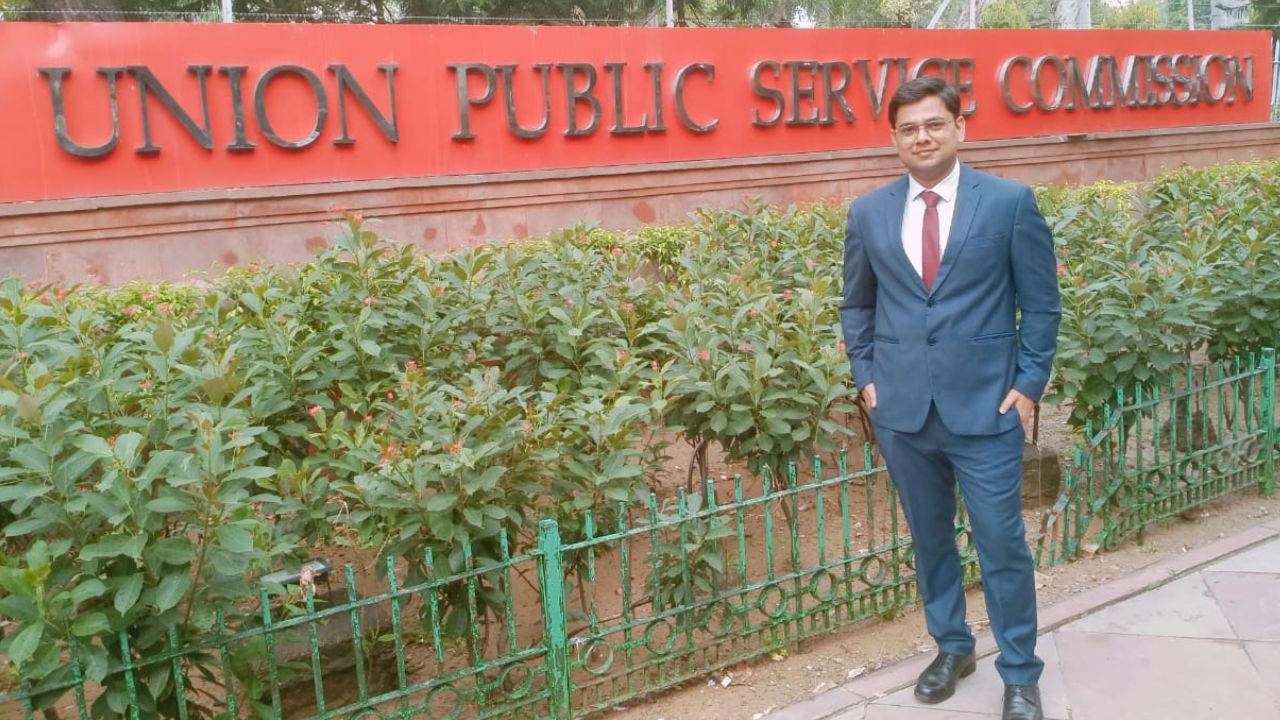- By Ritesh Kumar
- Sun, 06 Aug 2023 01:44 PM (IST)
- Source:JND
The Civil Services exam in India is highly challenging, with a large number of aspirants applying every year. However, only a select few manage to secure a spot in the final list. The UPSC conducts an exam to hire Deputy Directors for Employees State Insurance Corporation (ESIC), where they assess functional knowledge and select the most competent officers for these essential roles.
Jagran English interviewed Shubham Gupta, who achieved AIR 5 by cracking the UPSC ESIC examination without coaching. In the interview, he generously shared valuable insights on strategies to crack this exam, detailed information about parts A and B examinations, tips for the interview section, question papers pattern, and offered advice for aspiring candidates.
Q.) What was your journey to crack UPSC ESIC exam?
Ans) Starting with a job, I couldn't dedicate much time to my studies; however, during the lockdown, I began serious UPSC preparation. Although I attempted the UPSC mains twice and PCS mains without success, I remained persistent in my preparation. Finally, with unwavering dedication, I managed to crack the UPSC ESIC examination, and the interview took place on July 17, 2023.
Q.) What strategies can be adopted to prepare effectively for the English section in Part A of the UPSC ESIC exam?
Ans) For the English section of Part A, a total of 20 questions were asked. To enhance my preparation, I extensively studied S.P. Bakshi's English grammar book, which is also highly beneficial for SSC aspirants. Notably, I opted for self-study and did not enroll in any coaching program for this examination. I diligently practised numerous grammar exercises and sections to strengthen my skills.
Q.) In what ways can the Part B section of the UPSC ESIC exam be a game-changer for aspirants?
Ans) In the UPSC ESIC exam, Part B consisted of 100 questions out of a total of 120 questions. These questions covered approximately 10 subjects, including some unique ones. Initially, I doubted my ability to cover all the topics, but with consistent effort and dedication, I successfully prepared and covered all the subjects before the exam.
During my preparation for the UPSC ESIC exam, I utilised the Laxmikant book to study Polity, and for History, I relied on the Spectrum book, resulting in a strong foundation in these subjects. To comprehend the RTI topics thoroughly, I diligently went through the DoPT guidelines. For a comprehensive understanding of accounts, human resources, and marketing management, I sought assistance from educational videos on Youtube. Additionally, I made detailed notes to aid in my revision and retention of key concepts.
Q.) On average, how many months or years does it take for aspirants to crack the UPSC ESIC exam?
Ans) The time required for UPSC ESIC examination preparation varies depending on the aspirants' dedication and involvement. While it may take over a year for those who are not actively engaged in their preparations, candidates who stay committed and have cracked UPSC prelims and mains can adequately prepare in just 3 months.
Q.) How can aspirants excel in the interview stage of the UPSC ESIC exam, and what types of questions are commonly asked during the interview?
Ans) During the interview, the primary focus was on my work experience, with questions centered around the tasks I had undertaken. Additionally, they inquired about my hobbies, knowledge of ESIC, and awareness of current resources.
Q.) Given the UPSC ESIC education criteria requiring a minimum of 3 years of experience, how do aspirants effectively manage their studies while holding a job?
Ans) During the lockdown, I diligently managed to allocate time for my studies despite the alternating office schedules and rosters. I strived to maintain continuity in my preparation, and as the exam approached, I took a leave from work to focus solely on studying. Throughout this period, my study hours ranged from 2 to 12 hours per day, with an average of 4 to 5 hours daily. However, in the final month leading up to the exam and interview, I dedicated myself to studying for 12 hours a day.
Q.) As you have experience with the previous year's question paper, what specific patterns or changes have been observed in the current UPSC ESIC exam?
Ans) In the previous exam, the number of questions was 100, but now it has increased to 120. Moreover, the nature of the questions has become more dynamic compared to earlier formats.
Q.) What advice would you like to give to UPSC ESIC exam aspirants to enhance their preparation and increase their chances of success?
Ans) During the preparation time for UPSC ESIC or EPFO examination, aspirants are advised to cover all the topics comprehensively. It is essential for candidates to diligently make notes for every subject as part of their study strategy.
My family and friends served as my primary motivation, and I remained inherently self-motivated throughout my journey. My aspirations revolved around making a positive impact on society and pursuing a respected profession.

